The name HMS Queen Elizabeth is a continuation of an historic Royal Navy name dating back over a century and the vessel herself is not named after the current monarch, despite a popular misconception to the contrary.
While this is not a surprise to anyone, it’s been well publicised, we believe it important to clear up any doubt on this matter.
The first Queen Elizabeth, named in honour of Elizabeth I of England, was launched in 1913 and entered service in January 1915 during the First World War.
Speaking to a contact of ours within the Royal Navy currently serving on-board we were told:
“The carrier isn’t named after her majesty, she’s named after the first Queen Elizabeth from Tudor times, it’s also why our crest is the Tudor rose.
Our ship is named for previous ships with the same name, it’s why we carry the honours associated with that name. The original HMS Queen Elizabeth as pointed out, was named for Queen Elizabeth the first, not Second.”
It’s a fairly easy mistake to make, HMS Queen Elizabeth was commissioned by Queen Elizabeth the Second, her naming ceremony was also lead by Queen Elizabeth the Second. Even a recent Royal Navy news story had, at first glance, appeared to suggest that the carrier was named for Queen Elizabeth the second.
The article, found here, said:
“Her Majesty the Queen will formally commission her namesake aircraft carrier, HMS Queen Elizabeth, into the Royal Navy fleet in just three weeks’ time.”
We spoke to a Royal Navy communications officer who cleared up the usage of the word ‘namesake’ here, he told us:
“‘Namesake’ does not mean we are saying it’s named after Elizabeth II specifically, it means something has the same name, which it does. I will look to make the connection (or lack of) clearer in future stories.”
The aircraft carrier keeps the original 1913 battleships ship crest – a red and silver Tudor rose (the ship is named after Elizabeth I after all) – and the motto – semper eadem (always the same).
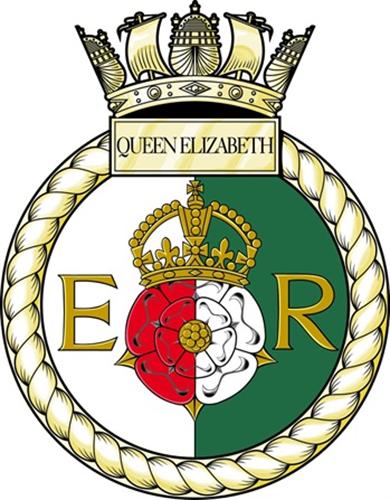



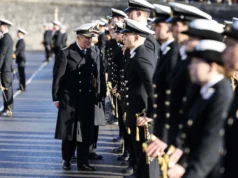

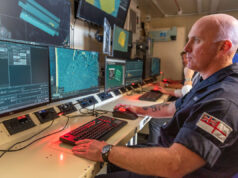
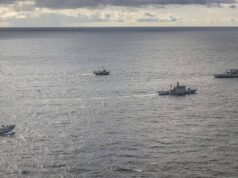
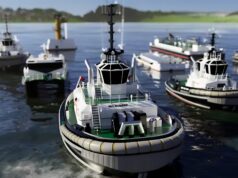
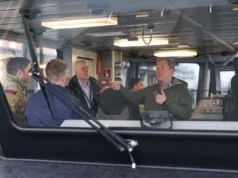
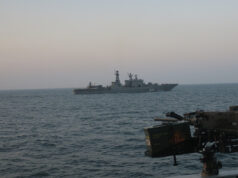
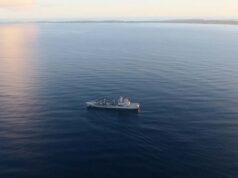
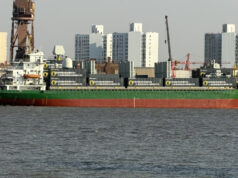
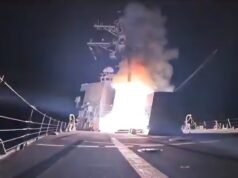

I’m annoyed the second of the class isn’t named Ark Royal.
I agree
I’ve mentioned in the past that Ark Royal is to the Royal Navy what Enterprise is to the US Navy; while Prince of Wales is a name with history, it does seem like a missed opportunity to mirror what the Americans did, and declare a new ship to continue the name of the old…
do we even need the armed forces read this interesting article
Lastly we have the third tier of threats, the least serious. The first is “a large-scale conventional military attack on Britain” by an unspecified other state. The second, somewhat desperately, is terrorism again, the third is crime again. The authors clearly ran out of threats, but had to fill their threat quota. We are also threatened by immigrants and smugglers “trying to cross the UK border”. We are “threatened” by an accident at a nuclear site; by a conventional attack on a Nato ally, and by an attack on a British colony. Finally, we face a curious bundle of threats: fuel shortages, price instability, and “a short- to medium-term disruption to international supplies or resources”.
A Eurofighter Typhoon
A Eurofighter Typhoon: was not up for discussion in the 1997 strategic defence review. Photograph: Ray Troll
You may note that almost none of the above is a threat. They are crimes and catastrophes or, in the case of being “drawn in” to a foreign conflict, a matter of political choice. Many things on the list may make me feel a bit uncomfortable, but few are remotely to do with the security of the state. They are incoherent and repetitive and rather desperate, like a madman with a sandwich board crying, “They are coming to get you; the end is nigh!”
Yet this list was the basis for last month’s strategic defence review with its £45bn price tag. A set of threats that are almost entirely non-military is to be met by submarines carrying nuclear missiles, two new aircraft carriers and dozens of jet fighters.
Let’s start with the threat of a nuclear missile landing on Britain. I have seen no analysis of how this might emerge from the existing international order, and certainly no explanation of how nuclear deterrence might apply in any specific case. In the barely conceivable eventuality of Iran or some such hostile state building a bomb, buying a missile capable of reaching Britain and then firing it, the act would be so lunatic as to be beyond any plausible deterrence. You cannot deter a suicidal nation any more than you can a suicidal bomber. Small wonder defence chiefs wanted their nuclear missile reclassified as “political”.
As for using this precious weapon to deter a conventional attack, that is surely no less fanciful. Britain’s possession of nuclear missiles has had no deterrent value in any of the dozen wars it has fought in half a century. Did we threaten Argentina with it? No. Yet time and again military strategists refer to it as a useful “reserve capability”. When a soldier resorts to abstract nouns you know he has lost the argument.
As for the threat of a conventional attack on the British Isles by another state, we can only ask, who? The threat is so negligible as to be insignificant. It is like insuring one’s house for billions of pounds against an asteroid attack. Is the attack to come from Russia, or France, or Germany, or Ireland? Defence pundits to whom I put this crucial question look down their noses, as if it were impertinent or undergraduate. They murmur that one can never know. Yet the political preconditions for a conventional attack on Britain are so distant – the review relegates it to tier three – that Britain would have some notice and time to re-arm, as we did with remarkable speed when last so confronted in 1940.
By jumbling together accidents, diseases, natural disasters and crimes as “threats”, the government undermines its own plausibility. The defence lobby is trying to hijack the jobs of the police, civil rescue and medical professions. In the case of “price instability”, it even wants to hijack the Financial Services Authority. These are not “threats to national security” against which we expect the defence ministry to plan or assemble conventional forces.
The same applies to the threat which the MoD has struggled for decades to make its own, that of international terrorism. The threat review is so keen that it lists it no fewer than three times. It implies a requirement to deploy conventional forces against terrorists, who might be acting as “proxy” for a state. But there is a difference between a state that wants to overpower, conquer and rule us – a ludicrous threat of no serious concern – and one that merely wants to make a nuisance in the hope of achieving some lesser goal, such as getting Britain out of Northern Ireland or making Israel into a pariah.
The latter certainly has applied, but if we were to deploy conventional forces against such a state we might, over the last quarter century, have declared war on Libya, Syria, Iran, the Irish Republic and even the state of Massachusetts. We did not. We treated an act of terror rightly as a methodology, a criminal means, not a political end. As Joseph Conrad said in The Secret Agent, the terrorist was a pest walking the street alone. His is a local and specific form of violence, causing mayhem in the hope of spreading panic and changing a state’s behaviour in response to it. Terrorism has no political content unless awarded one by the victim nation.
A computer image of one of the navy’s new aircraft carriers
A computer-generated image of one of the navy’s two new aircraft carriers, saved despite cuts. Photograph: MoD/PA
With the IRA and the PLO in the 1970s, the authorities played down the political significance of any outrage. Prisoners were treated as criminals and denied political status. The most limited coverage was given to their demands. Now we do the opposite. We play up the politics. I remember the admirable response to 9/11 by New York mayor Rudy Giuliani. He told New Yorkers on the day of the attack to go about their business as usual, use the park, go to a show, buy a pizza, keep working and, above all, keep spending. The trouble was, 9/11 was so awful an incident as to apparently transform a terrorist outrage into an apparent state of war, and thus admit it within the ambit of conventional defence. Nobody took any notice of what Giuliani said. They did what al-Qaida wanted, which was indulge in mass hysteria. Blair said the rules of the international game had changed – an astonishing accolade to Osama bin Laden. This cannot be unconnected with the fact that a politician’s poll rating soars in the aftermath of a terrorist incident. Nothing helped George Bush more than 9/11.
Politicians rush to the cameras, dive into bunkers and warn of threats to civilisation as we know it. Conventional military forces are put on alert. Blair once rushed tanks to Heathrow in a madcap gesture of self-importance. We invaded Afghanistan for harbouring terrorists. We invaded Iraq on the thesis that it might do so. Do we now invade Pakistan and Yemen on the same basis?
Far from being deterred, terrorists and their sponsors clearly derive prestige and political clout when conventional forces are ranged against them. We thereby put them on the pedestal of state threat. By infringing our liberties and curbing our freedoms in their honour we let them win battles. By being publicly scared, as of this week’s parcel bombs, we invite them to scare us some more.
Such an approach to defence is not just wasteful but counter-productive. Politicians from Blair to Cameron declare the aim of war in Iraq and Afghanistan is to make the streets of Britain safer. There is not an iota of evidence for this extraordinary claim. Most analysts, including former security chiefs in the House of Lords, say the precise opposite. These wars have made us less safe, by making Britain a prime target for terrorists and breeding homegrown terrorists in schools, colleges and mosques. Watching Gordon Brown in Helmand mouthing nonsense about boys dying for safer streets was painful. He clearly did not believe it.
So what of the other most common cause of Britain going to war, the threat of being “drawn into” someone else’s squabble? First, this is not a threat but a political choice. These wars are nowadays called wars of choice. They are always beguiling. What you have, you are induced to deploy, often for the vaguest of purposes, such as “making the world a better place”. The navy cites the need to stop pirates in the Indian Ocean and drug-runners in the Caribbean. Blair contributed British forces to six separate conflicts in his time in office, in Afghanistan, Sierra Leone and two each in Iraq and the former Yugoslavia. None was in response to a threat to the security of the British state. They were adjuncts to his foreign policy goal of “hugging close” to Washington.
Armies with nothing to do tend to distort the purpose for which they were formed. They become institutionalised. They coalesce into a wide constituency of veterans, territorial and political supporters, above all, equipment suppliers. As with terrorism, so with the government’s other listed threats, we should ponder those who leap forward to publicise them. Whenever the BBC calls in a “security expert” to comment on the awfulness of some new threat, we should be told for whom he works. Remember Deep Throat’s maxim, follow the money?
Being “drawn in” is the phraseology of the security review. But note the intransitive. Drawn in by whom? In whose interests, or on whose behalf, are we spending billions of pounds killing thousands of people in the Muslim world just now? Shouldn’t we also have been “drawn in” to Rwanda, Darfur, Somalia, Sri Lanka, Burma? In each case, man’s inhumanity to man has been more gross than in Iraq and Afghanistan. We did nothing.
British troops at Basra in Iraq, 2006
British troops disembarking from a helicopter at Basra in southern Iraq in 2007. Photograph: Essam al-Sudani/AFP/Getty Images
From the earliest enunciation of liberal interventionism, it has been wanting in rigour. In 1999, Blair spoke in Chicago in favour of humanitarian “just” wars, as if they carried with them their own validation. All they carried was a clutter of moral superiority. I do not regard Germans or Japanese or Indians or Brazilians as lacking in moral fibre for not fighting alongside us in Blair’s wars. I find nothing peculiarly moral, first in helping the break up of former Yugoslavia, then the break up of Serbia and now the devastation of Iraq and Afghanistan.
We are left with what I call the ontological argument for defences spending. It exists and therefore it is. It is the ultimate security, to which no concept of proportion can apply. We protect ourselves out of instinct. Like spending on health, you just cannot get enough of it.
It is a response not to known threats (such as Russia), nor even to known unknowns (such as a resurgent Russia), but to those famous unknown unknowns. The great ontologist, Donald Rumsfeld, remains the patron saint of defence expenditure.
The argument can take amazing forms. Come now, say the high priests. Just suppose another Hitler rose again, built a new Luftwaffe and U-boats, and bombed London and sank all our coastal trade. We would need a carrier. Suppose Russia falls under the sway of an oligarch with a grudge against Harrods and a business rival in Kensington Palace Gardens. Suppose he decides to nuke them. Supposed 100 suicide bombers block-booked themselves on Eurostar and went to every Premier League match. You would look pretty silly, Jenkins, wouldn’t you?
I would look pretty silly, and probably I wouldn’t be the only one. But for the time being, I regard such unrealities used to justify massive spending as no less silly. We can only meet realistic threats. We do not build 1,000 NHS hospitals and leave them to await the return of bubonic plague.
Britain as a sovereign state is less “under threat” today than ever in my life, indeed less than ever in its existence. That is to the credit of recent generations of British governments. But this means we do not need a defence that has been successfully rendered obsolete.
The chief threat to me today, if at all, is from crime. Yet we are appalling at combating it. Obsessed with punishment, we neglect crime prevention. To guard me from unreal foreign attack the government spends £45bn, but to guard my home and hearth from crime it spends just £6.4bn, and badly. I am defended against crime, including terrorist attack, not by an army, navy or air force, but by vigilant acquaintances of the criminals, by an alert school and mosque, by the police and by the apparatus of intelligence, espionage and diplomacy.
The truth of the matter is that our defence spending is misdirected and extravagantly out of date. We are re-equipping for Agincourt on the brink of Waterloo. We are laying down long boats for the battle of the Atlantic. We are deploying cold-war weapons against occasional outrages by fanatics with no capacity to cause the state harm.
I sometimes wonder why I see things this way, when so few others do. I am a pragmatist, not a pacifist. But I respect language, and am suspicious of the vapid cliches about national interest, punching our weight, sitting at top tables and being respected. I hate to see terrorism, a miserable perversion, accorded the accolade of grand enemy of the state. I hate to see statesmen whose job is to keep threats out of sight and mind exploiting the politics of fear.
The fault lies partly in the sloppy language used to discuss defence, which loses all ability to convey risk and proportion and slides into sloppy nouns and sloppy thinking. At that point, leaders lose touch with democracy, a serious threat to the security of any state. The only defence against that danger lies not in armies, bombs and guns, but solely in the deployment of meticulous reason.
https://www.theguardian.com/politics/2010/nov/05/does-britain-need-the-military-army-navy-raf
pause for thought
https://www.theguardian.com/politics/2010/nov/05/does-britain-need-the-military-army-navy-raf
interesting piece, what do we think?
I looked at the paper publishing it and that was it Andy.
The day other nations around the world dispose of their military unilaterally then the UK can too. Til then.
Yes, but come on. As the RN’s biggest ever ship entering service in the final years of our longest serving and arguably greatest monarchs life it should be named after the current Queen in my opinion.
Would be a fine tribute to a remarkable monarch.
Personally I hope this misconception continues!
Never mind Queen Elizabeth II, we’re still waiting on a capital ship named after her old dad!
In the past, we’ve had HMS King George V (KGV), HMS King Edward VII, HMS Victoria ……
How about calling one of the Successor class, “HMS King George VI” !?!
The navy buffs on this forum will know for sure, but I think there’s also a tradition of naming the first capital ship of a new reign after the monarch …..
HMS King Charles III anyone ????
That was pretty much my thoughts too. George VI led the UK through WW2 as much as WSC did, so some sort of recognition for the Queen’s father is long overdue.
Then again, George VI asked that the King George V class Battleships were named for his father and brother, and only at the 3rd of the 5, Duke of York was one named for him. At least that is how the story seems to go.
Henry VIII was a bold and manly King of England, England’s last warrior King, and established the Royal Navy, if his daughter deserves a ship named after her so does he. Edward I and Richard Lionheart are two other great English warrior Kings who deserve Royal Navy ships named after them.
Hi Stephen, If you’re getting Edward I, “Hammer of the Scots”, then up here, we’ll need to insist on an “HMS King Robert the Bruce”! LOL
Nice one Alan that made me smile.
However I have to say that the navy or whoever can say it as much as they like, but it is at the very, very least a coincidence that they could not resist. Lets be honest with all the names available and I suspect 20 or 30 plus have been mentioned on here alone on various pages, how are we seriously to believe that these two ships are call Queen Elizabeth and PoW to be purely coincidentally. The same thing was said of the QE2 though ironically the Queen it is said thought it was named after her while launching it and no one dared to suggest to her it was not (being purely the 2nd of the line), so was forever associated with her thereafter, indeed at all times tbh. The same it will be with this one so them denying the link just makes you wonder how much of what they say is really believable but I guess they prefer to feed us that line.
I may be in error but I can only find one previous ship of that name i.e. the 1913 Battleship though the cancelled 1960s carrier was to have that name it seems, so I guess they would claim it was due, though one must also ask why that ship was to be called that name too coincidentally some 10 years into her reign.
As for Charles 3 as a potential name (I truly hope not, would prefer Princess Meghan lol) but one wonders what name Charles will take as and when he becomes King. He said may years back that he was to be George 7 as they tend to choose what name they like upon being throned, and considering the relative negativity of the name Charles in the realms of Kingship and his own somewhat patchy popularity that may still be his plan I guess to prevent the double whammy. So we may get a George VII one day or should I say more like King George or of course Royal George so that they can deny it is actually named after the present King.
Hi Spy, Thanks for a great post.
Like you, I suspect “politics” at work and the Navy using every means at their disposal to avoid a potential cancellation, including an association with the current monarch. (Not that it worked in the 1960s!)
In the project’s period of greatest threat during 2010, it’s reported that Cameron & Osborne wanted to cancel POW, but the contract was pretty water-tight.
You can argue that both names have a bad history: the last HMS Queen Elizabeth was sunk by Italian frogmen in Alexandria harbour during late-1941, and we all know what happened to the last HMS Prince of Wales!
But I like both names; very British – a bit regal with a touch of Shakespeare!
Never really thought about the name before, but of course Queen Elizabeth 1 was Queen of England not Scotland, so QE2 is QE2 of England and Wales, but QE1 of Scotland. Don’t see much about that any more thank goodness, ecept for historical accuracy.
As for names of warships, if they are propogated to celebrate naval victories like Ark Royal against the Spanish Armada, it’s England basically had a navy, then the UK, so it seems reasonable to call them after them. Hearts of Oak and all that.
HMS William Wallace would be a bit of a strange name all the same 🙂
Hi dadsarmy
Quick search on Goggle revealed, there has indeed been an HMS Wallace! And unsurprisingly, the ship had a great fighting career!
http://vandwdestroyerassociation.org.uk/HMS_Wallace/index.html
Personally, like many Scots, I call the current queen – Elizabeth I, Queen of Scots. But after the controversy over her naming, I think the convention arrived at is for the monarch to take the next number in the Anglo/Scottish series … so any British “King Robert” will be known as King Robert IV (because the Scots have already had three sovereigns of that name).
Hi Alan,
Excellent, so she has, and an illustrious career as well. Curiously I don’t know much about the North Sea convoys, more the Arctic and Malta ones (and North Atlantic). Must have mised her in the Sicily landings. I think that page got this wrong though: “Motto: Pro Patria, “For the Fatherland” ” – should be country 🙂
The RN do try to be inclusive.
Ha, that’s funny I said that, found this:
http://www.naval-history.net/xGM-Chrono-10DD-01Shakes-HMS_Wallace.htm
“HMS WALLACE spent most of her war service escorting North Sea convoys and like others deployed for this essential service received little publicity. ”
I think I’m going to have a little research and reading to do 🙂
Hi dads, looks like you have a new project!
Well Alan, when I were but a lad, I read every book in the library, and then more as well, not just naval battles but the convoys (as well as air and land). Doesn’t really ring a bell. I guess the likes of the Malta, Atlantic and Arctic / Russian convoys were more “glamorous”, so nobody bothered with East coast stuff. Sad, and it makes me wonder if they were properly honoured. It took decades for the sailors both Merchant and RN to be properly honoured for the Russian Convoys because of the cold war (Russia DID honour them). Googling “North sea convoys” just brings up Arctic leads.
Ho hum, a project while ignoring the pre-match waffle for the rugby this weekend 🙂
The Successor (Dreadnought class) programme in build has the fourth and last Dreadnought sub being named King George VI apparently.
https://www.naval-technology.com/news/british-royal-navy-names-fourth-dreadnought-class-submarine/
HMS Dreadnought was a fitting name considering it was the name of our first modern battleship and first nuclear powered submarine. Two very powerful and game changing vessels.
As you might see from the comments people have varying opinions on what it should have been called. But in the end no matter what was chosen it would have annoyed others.
HMS Queen Elizabeth is a fine name with a fine history, And whilst it is always denied it will always be a homage to the current Queen Elizabeth through all the years of its service.
Prince of Wales is alright. I only really like it because it dispels the notion that just because the last ship to hear it’s name sank does not mean that it’s shamed or cursed or the like. I agree with other commentators that it should have been named Ark Royal however. It is a majestic name with a proud history that is world famous.
Sailed with a gentleman who was always talking about his time in ‘the Old QE’. Obviously a happy ship and well liked by the crew.
Fine words butter no parsnips
Wonder what the Scots think about a ship named after a purely English queen, although with the first three type 26 frigates named Belfast, Cardiff and Glasgow maybe it just evens things out.
Ark Royal for the second of class. Not that spineless, interfering, two-faced git.
I would imagine Prince of Wales is named after the title not the person.
You are, of course, absolutely correct. The ship is named after the title, not any individual holder of said title.
Of course we believe that line too. Geez the dice must have been lucky that day when naming those ships. At least it has had 6 previous ships however to back up the line though only 3 of any significance I note.
Personally I don’t like Royal names in this day and age just becomes a little too Disney for my taste and reverential if we are to appeal to new recruits but what is is I guess and at least the crests look good. If the first ship is truly Elizabeth I then to represent a new line of ships for the navy perhaps a twist would have been appropriate be it straight Elizabeth I or the title or Elizabeth Tudor would have had a nice touch to my mind but then the happy coincidence would have been lost altogether wouldn’t it indeed taken as an insult to the present Queen by many.
Its called the ROYAL navy be pretty stupid not to have royal names on ships in this “day and age”. Also a lot of sailors young and old take pride in their ship name, plus I doubt recruits care. What should we call them then HMS David Beckham.
Says someone who has achieved what exactly?
As far as I am aware there has never been a Royal Navy ship bearing the name HMS Leicester City. The Royal Navy suggested it once many years ago but the then City Council declined the connection to the frustration of many.
However it’s good to know that the ship’s motto, “Always the Same” happens also to be the City of Leicester’s motto too. It’s great to have that connection to this great ship.
Bear in mind the the first Queen Elizabeth was the leader at the time of our expansion to becoming a world power so i personally dont have a problem with that
Unfortunately the present queen has the misfortune of our power going in the opposite way (although i do know she has no say in the matter)
To me, HMS Ark Royal will always be the big-fleet carrier of the Cold War and the “Sailor” documentary. (The later small Invincible-class vessel barely registered).
I’m all for HMS Prince of Wales; it’s got a bit of gravitas – and maybe it’s time to let a new tradition grow.
Agree should be named QE 2
QE2 is the name of a retired cruise liner, just to add a bit more confusion.
I don’t mind either name for the ships, the most important thing is we are getting two impressive new carriers and a resurgence in Royal Navy capability.
Getting two new carriers yes but what about the escorts?
Perhaps 2 x T26, 1 or 2 x 45 and whatever NATO / the USA add to that.
RN does not have the money for both.
If the 45’s and 26’s are primarily assigned to this role as alluded by 1SL instead of deploying singly on various roles around the world would we have enough if a third of each was assigned at any one time?
6-8 T26 2 assigned any one time.
6 T45 1 or 2 assigned any one time.
Plus occasional SSN.
What would be a suitable escort force?
In the days when we had two operational fleet carriers, I was once told by a FAA PO that the reason Ark Royal seemed to get all the publicity and the Eagle remained almost anonymous, was that Ark Royal was gin palace, whereas the Eagle was just a fighting ship!
I forgot about Eagle I always loved that name when I grew up maybe cause we all read the comic back then and the name stuck in the mind. That would have been my choice I now realise. Illustrious was my second choice and Ark Royal only third I think at least till I began to read up on the history. Sadly I guess the latter two and Invincible have now been tainted by the previous class of through deck cruisers (yuk) and not the image they want to give to the new ones.
Why has there never been an HMS Defiant apart from the film (maybe because of) that seemed a natural name for a RN ship. I guess too close to HMS Defiance maybe.
I’ve corrected the wiki entry once and it get a changed back
Exactly, just as HMS Prince of Wales is not named after HRH Prince Charles even though Queen Elizabeth of England had no Prince of Wales during her reign.
Of course Elizabeth 1st was the Tudor queen of England(&Wales).
As Scotland where these warships were built has never had a previous Queen Elizabeth, and neither has the United Kingdom of Great Britain or the Commonwealth, it would be a terrible insult to all of those to name a Royal Navy flagship after a sovereign before their time.
Oh they did?
Maybe that is why England is going to be left without the UK or the Commonwealth in the very near future.
The Commonwealth has grown in recent years with even former French colonies jumping on the bandwagon so don’t see that happening.
But you are right in your main thrust if it is named after Elizabeth I it is in a way rather insulting to the Scots. Thus my point earlier the ‘coincidence’ is handy as the present Queen is Queen of both and arguably more Scots than English genetically even if its both massively less than her German DNA.
HMS Queen Elizabeth is a traditional RN name every bit as much as HMS Glasgow, HMS Cardiff and HMS Belfast are. Not a problem.
.
Hi Gordon, I think Scotland did have at least one Queen Elizabeth (The Queen Mum), a great wartime queen-consort, with very strong Scottish connections.
And to be fair – they did build the carriers in Scotland, and create all those highly skilled jobs, and launch a new generation of apprentices into the ship-building industry.
Maybe the union has got a wee bit of life left in it yet, eh?
I quite agree with you. The Admiralty pulled a fast one there with the naming of the class Queen Elizabeth (For the English Queen).
I can just picture the admirals tittering into their pink gins when they came up with the idea.
It’s always really been the English Navy.
Even in King James VI/I the English Navy blockaded the Scottish Navy.
Should have called the class HMS Great Michael after the greatest ship in Europe when it was built in Newhaven on the Forth for the Scottish Navy.
Glasgow, Cardiff, Belfast Queen Elizabeth all good traditional RN names. Not an issue.
Personally, I hope they name one of the Dreadnaught class HMS Hood.
I seriously hope not. The name should be for the Royal Navy’s future biggest ship made entirely out of British plate and section! Otherwise, let the great name rest in peace for now and the future until that day comes. I’m sure it will, but not now or for a Trident Sub.
RMS Queen Elizabeth (80 years this year this the greatest ship ever built was launched) was named after the Queen Mother, and QE2 was named after RMS Queen Elizabeth, but her majesty named her Queen Elizabeth the second (Naughty Queenie). But her Majesty was crowned Queen Elizabeth, not Queen Elizabeth the second, as United Britain has only had one Queen Elizabeth, or rather her majesty is the first Queen Elizabeth of a United Britain. We know she is named after the Battleship, but it is unfair to other parts of the Country that built her.
Confused. I was.
Well, UK’s monarchs have been using regnal names in continuation of england’s..edward VII n VIII, william IV for example… So if taking current queen as the second of her name is considered insulting, then it has been so for two centuries…
[…] most dissapointing part of this is that our original short article here, the story that gave rise to the aforementioned outrage piece, was simply meant to counter the […]
[…] most disappointing part of this is that our original short article here, the story that gave rise to the aforementioned outrage piece, was simply meant to counter the […]
Bill it’s 2021, language changes. It survived editorship because I wanted it to.